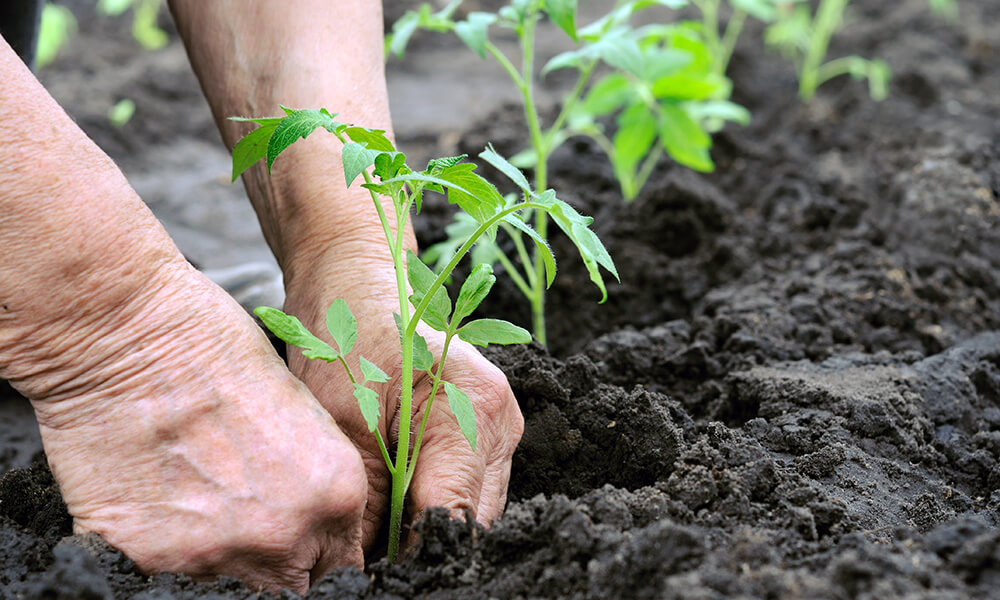
The weather is getting warmer. The snow has finally melted and Spring is finally here! This is the time of year when many people begin their favorite outdoor hobbies. Gardening is one of the more popular activities this time of year, and for good reason. Gardening has been proven to yield myriad surprising health benefits.
Exercise. Gardening is a great form of exercise. With gardening you can attain a full body workout that would take you hours at the gym. [1] The walking, pulling up weeds, pruning, planting, and plucking fruits and vegetables are all aerobic exercise of one form or another; but they are also strength training exercise as well. Gardening can also range from moderate to strenuous exercise as well.[2] Carrying large pails of water or bags of soil and fertilizer offer a more strenuous strength training exercise, as well as shoveling and tilling your garden. The kneeling and reaching in the garden can also improve flexibility and range of motion through stretching. It also helps to improve hand strength and dexterity,[3] which is especially important as we age.
Nutrition. Of course gardening is nutritious![4][8] After all, you are growing fruits and vegetables! According to the most recent Federal Dietary Guidelines, Americans should be eating way more fruits, vegetables, and whole grains and a lot less red and processed meats. In fact, they recommend a diet of mostly plant based foods including nuts, seeds, whole grains, fruits, vegetables, legumes, soybean, and plant based oils such as olive, corn, coconut, sunflower, safflower, and soybean.
Bone Health. Vitamin D helps the body absorb calcium,[5] promoting bone health. Vitamin D is produced naturally in the body when exposed to sunlight. Working outside in the garden all day will get you plenty of exposure to the sun, and subsequently plenty of Vitamin D. Weight bearing exercise and strength training also help to strengthen bones and prevent osteoporosis by stretching and strengthening the muscles around them.[4] The digging, weeding and occasional heavy lifting associated with gardening are all examples of weight bearing or strength training exercise that will help strengthen bones and muscles.
The Healing Effect. There are numerous microorganisms that live in the soil. By exposing your body to these harmless bacteria, you can help build up your strengthen your immune system.[1] Plus, all that vitamin D from sun exposure will also help prevent disease. Vitamin D has been shown to have protective effects against certain types of cancers and may help to prevent Type II diabetes.[6] Numerous studies have shown the calming, healing effect of nature.[7] Nature lowers stress levels, improving the immune system. One study done at Texas A&M University in 1984 showed that patients recovering from Gall Bladder surgery actually healed quicker and took less pain medication when exposed to nature.[7] The aerobic exercise from gardening will also make you healthier. Just 30 minutes a day of moderate aerobic exercise can improve heart health and reduce risk of cardiovascular disease.[4]
Improve Mental Health. Not only does gardening help to lower stress levels, it also helps to improve mental health on many different levels; one way is from mycobacterium vaccae, a harmless bacteria found in dirt, that has been shown to boost serotonin production.[1][7] There have also been several studies to show that connecting with nature has a positive effect on mood.[1][2][3][4][7][8][9] Working in the garden engages all the senses and requires all of your attention. This can help you enter a state of "flow" where you forget about the stresses in your life and can even lose track of time.[9][11] It is like a working state of meditation, which can reduce stress and greatly benefit mental health. Studies have shown that avid gardeners are less likely than the general population to develop dementia and Alzheimer's, so gardening can help to improve brain health as well as mental health![1][3][4][7][9][10]
With all of the joys and health benefits of gardening, it's no wonder it is such a popular past time for so many. When gardening, just like with any other form of exercise, it is important to use proper technique in order to avoid injury. Thankfully, Community Care Physical Therapy has some tips to help avoid injury while in the garden, which you can find here.
References:
- Choan, S. (2016, November 30) 6 Wonderful Benefits of Gardening. Retrieved from https://www.organiclesson.com/6-wonderful-health-benefits-of-gardening/
- Savacool, J. (2014, May 11) Health benefits bloom by digging in the garden. Retrieved from https://www.usatoday.com/story/news/nation/2014/05/11/health-benefits-gardening/7971047/
- Jacobs, R. (2014, September 19) 6 Unexpected Health Benefits of Gardening. Retrieved from http://learn.eartheasy.com/2014/09/6-unexpected-health-benefits-of-gardening/
- Cooper, H. (2015, July 1) The Dirt on Gardening 6 surprising benefits. Retrieved from http://www.alive.com/lifestyle/the-dirt-on-gardening/
- Vitamin D council. (2017) The Physiology of Vitamin D. Retrieved from https://www.vitamindcouncil.org/the-physiology-of-vitamin-d/
- Harvard Men's Health Watch. (2007, February) Vitamin D and your health: Breaking old rules, raising new hopes. Retrieved from http://www.health.harvard.edu/newsletter_article/vitamin-d-and-your-health-breaking-old-rules-raising-new-hopes
- Eliades, A. (2013, June 5) Wellbeing Gardening – Gardening for the Body, Mind & Spirit. Retrieved from https://permaculturenews.org/2013/06/05/wellbeing-gardening-gardening-for-the-body-mind-spirit/
- Harding, A. (2011, July 8) Why gardening is good for your health. Retrieved from http://www.cnn.com/2011/HEALTH/07/08/why.gardening.good/
- Sorin, F. (2015, January) 13 Reasons Why is Gardening is Good for Your Health. Retrieved from http://gardeninggonewild.com/?p=27941
- Straus, R. (2017, January 25) 5 Surprising Ways Gardening Improves Your Health. Retrieved from http://www.rodalesorganiclife.com/garden/5-surprising-ways-gardening-improves-your-health
- Csikszentmihalyi, Mihaly (1990). Flow: The Psychology of Optimal Experience. New York, NY: Harper and Row.
